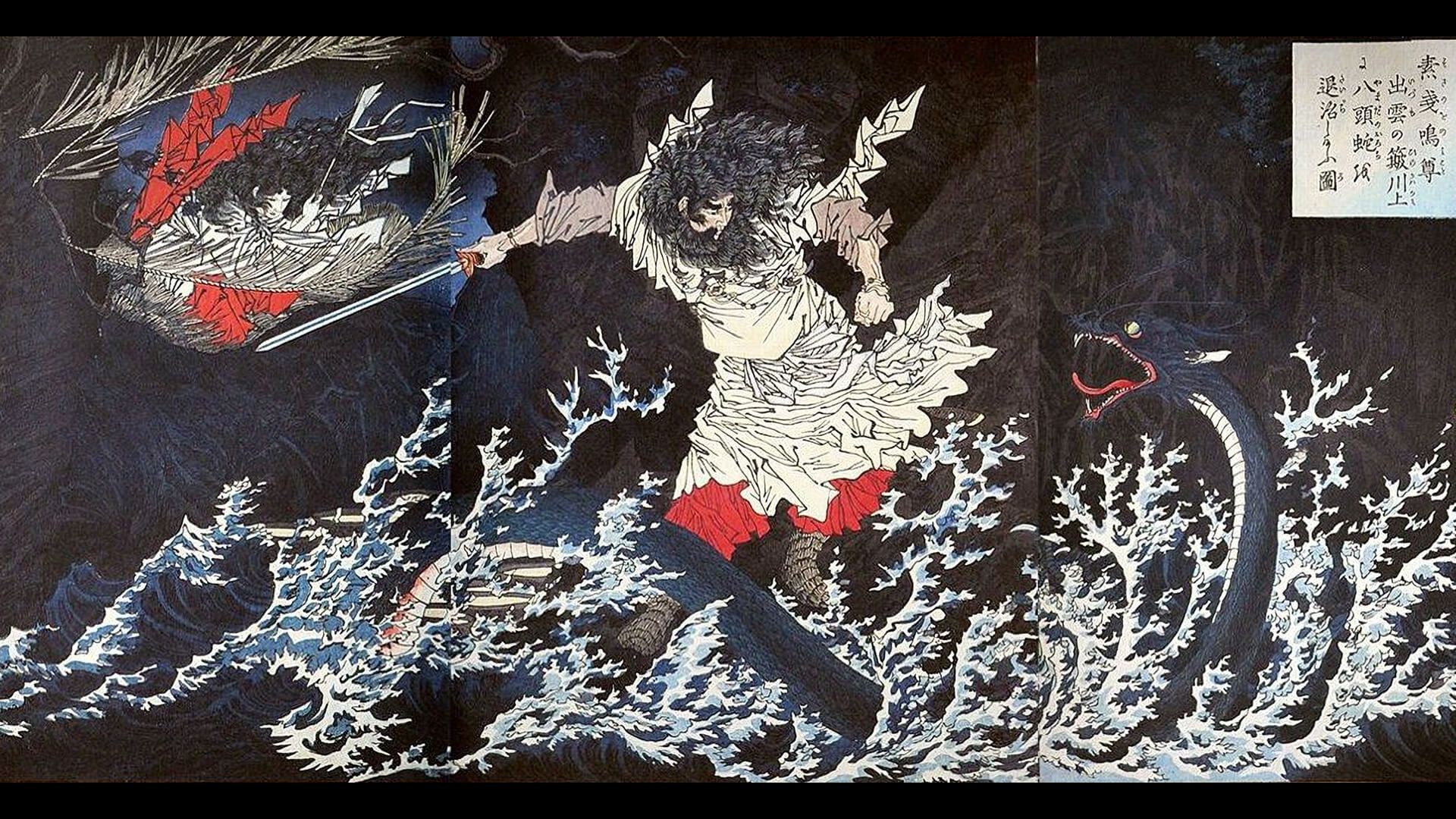-He came across an old man and woman weeping over a maiden
-they descended from the Mountain-God
-Susa-no-wo finds out from the man that an 8 forked serpent has taken his 8 daughters and will now surely take his last
-the serpent has red eyes, blood-inflamed body, 8 heads, and 8 tails
-its so big that trees grow on its back
-Susa-no-wo says he will slay the serpent for the mans daughter's hand in marriage
-apparently he is the brother of the Sun Goddess
-the two elder deities agreed
-Susa-no-wo transformed the maiden into a comb which he put in his hair
-He made 8 large vats of very strong sake
-the serpent came and drank up the sake becoming very drowsy
-in the serpents drunken state, Susa-no-wo cut the serpent into 1000 pieces and found a divine sword within it
-he turned the comb back into the maiden
-Like high ramparts manifoldLo the clouds appear:
On all sides they firm enfold
Kushinada dear,
Prisoned mine for e’er to hold
In their ramparts manifold!
Susa-no-wo's Struggle. Source: Wikimedia Commons






.jpg/799px-Ant_with_a_gold_and_hairy_bum_(4243403175).jpg)
